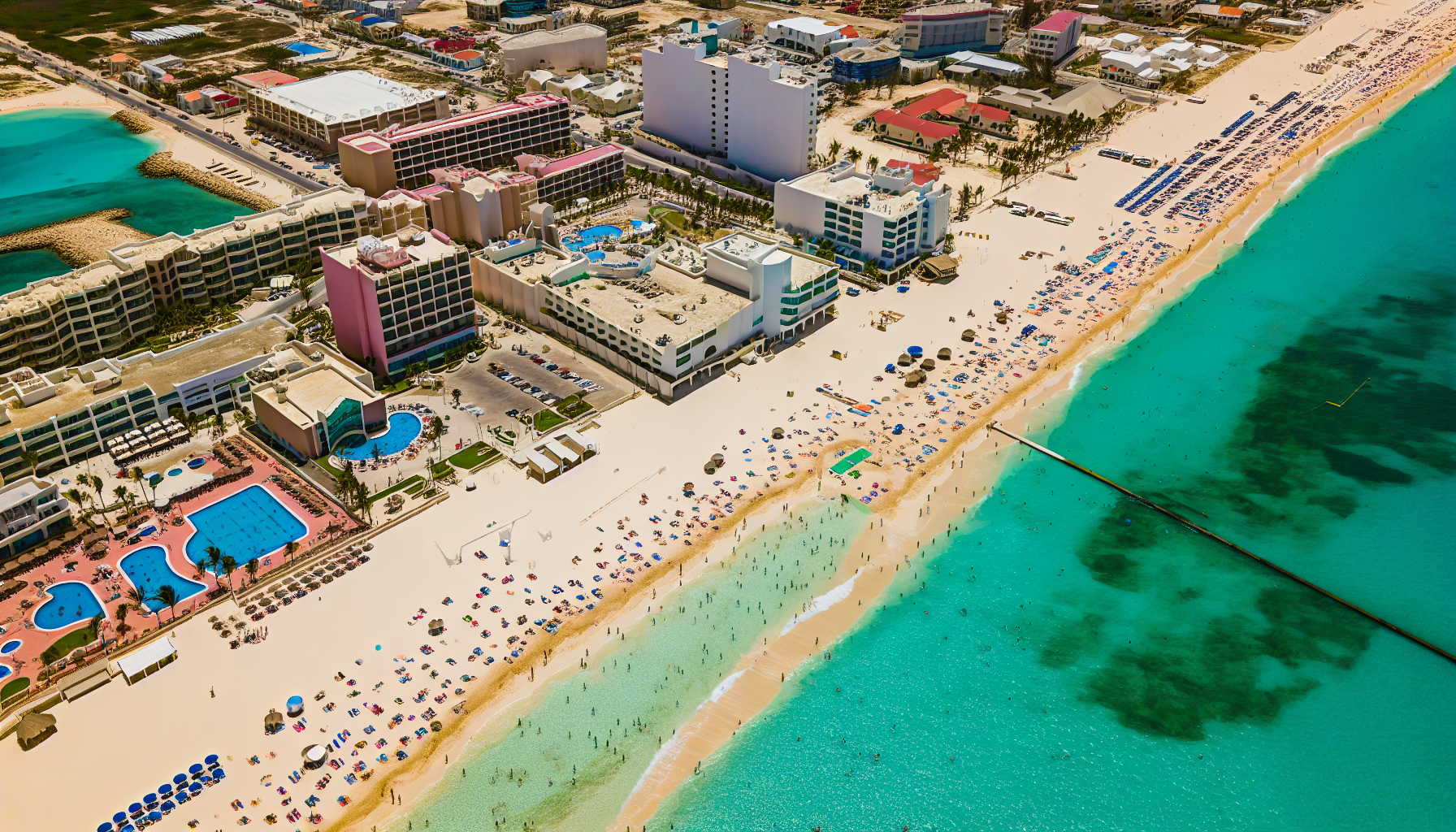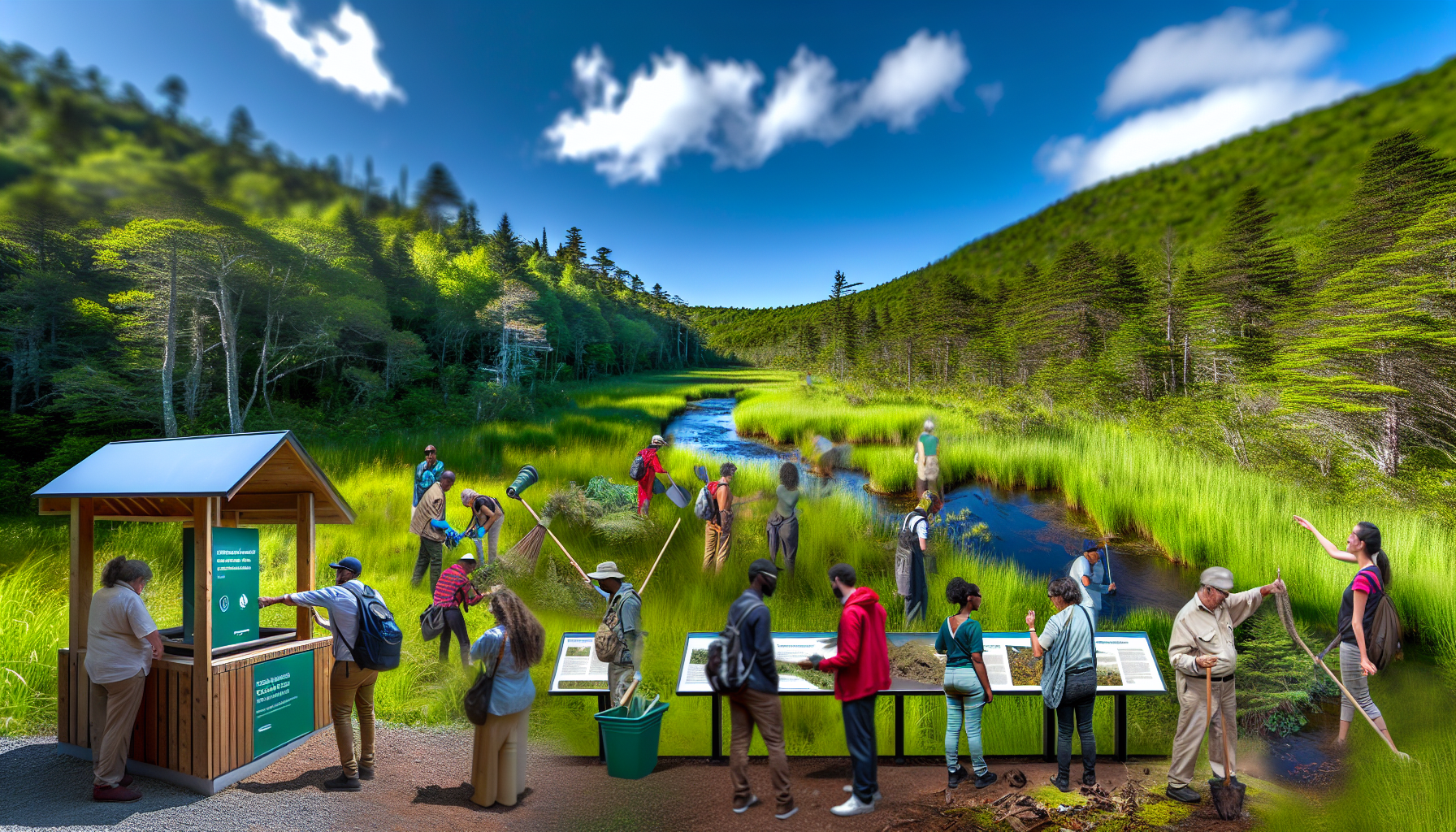Exploring the Ripple Effect: How Does Tourism Affect the Economy?

Tourism bolsters economies by generating income, creating jobs, and driving demand for local services. This article dives into the key question of
“how does tourism affect the economy?”
exploring the direct cash infusion from travelers and the cascading effects across businesses and infrastructure. Take an in-depth look at these dynamics without over-complicating the practical ways tourism provides for global communities.
Key Takeaways
Tourism substantially contributes to global and local economies through direct spending by tourists, indirect effects on related sectors, and driving infrastructure development.
The tourism industry is a significant source of employment, offering direct job opportunities within the sector and indirect jobs in supporting industries, though the quality of these jobs can vary.
Tourism boosts the economy, helps communities grow, and promotes sustainability. However, it needs to be managed carefully to ensure it benefits both the economy and the environment.
Tourism's Economic Contributions

The travel and tourism industry is a significant contributor to the global economy, accounting for over 10.4% of global GDP in 2019. From bustling cities to tranquil islands, tourist destinations worldwide see their local economies boosted by the influx of international tourist arrivals say The World Tourism Organization. H ow does this impact translate into tangible economic benefits?
Tourism’s economic contributions are manifold. At the forefront is the direct impact on the local economy through spending by tourists. The sector’s influence extends beyond the immediate spending, fostering growth of local businesses, creating jobs, and stimulating infrastructural development. Let’s delve deeper into these facets of tourism’s economic contributions.
From a bustling beach-side restaurant to a serene mountain lodge, businesses in tourist destinations experience a significant boost from the surge of tourists. Tourism-related transportation, such as airlines and car rentals, also contribute positively to the local economy by driving infrastructure improvements and generating revenue through tourist expenditures. Indeed, the tangible economic benefits of tourism are undeniable, shaping the economic landscape of tourist destinations worldwide.
Indirect Economic Effects
Tourism’s economic contributions are not confined to the direct effects alone. The ripple effect of tourism stretches further, leading to indirect economic gains that can be even more significant. These gains permeate numerous sectors linked to tourism, such as agriculture, manufacturing, and retail.
When tourists dine at local restaurants, they create demand for fresh, local produce, thereby stimulating the agricultural sector. Tourists’ purchases of souvenirs and local products can boost manufacturing and retail industries. It's notable to mention that tourism indirectly affects local businesses by generating higher demand for their services and products, leading to job creation and improved economic growth within the local community. Thus, the indirect effects of tourism serve as an essential catalyst for broader economic development.
Infrastructure Investment
A less obvious, yet equally significant contribution of tourism is its role in driving infrastructure investment. From roads and airports to public facilities, tourism often serves as the impetus for infrastructure development, benefiting not just the tourists, but the local communities as well.
The tourism sector’s demand for efficient and reliable transportation networks, comfortable accommodations, and modern amenities leads to substantial investments in tourism infrastructure. These investments not only enhance the overall tourist experience but also stimulate economic growth, create job opportunities, and promote community participation and well-being.
Employment Opportunities in the Tourism Sector

The tourism sector supported over 22 million jobs worldwide in 2022, reflecting its critical role in employment creation. But what are these jobs, and how do they contribute to the economy?
Jobs in tourism span a broad spectrum, ranging from front-line roles in hotels and attractions to managerial positions and strategic roles. The sector also creates indirect employment opportunities in various industries linked to tourism, from agriculture to manufacturing. Let’s delve deeper into the tourism related jobs generated by this thriving industry.
Direct Employment
Direct employment in the tourism industry is perhaps the most visible form of economic contribution. These jobs are those directly involved in providing services to tourists, such as hotel staff, tour guides, and travel agents.
Direct employment also includes various operational and managerial roles, such as hotel and restaurant managers, who play a critical role in ensuring a seamless tourist experience. Even in the face of global challenges, the demand for these roles continues to grow, underscoring the resilience of the tourism industry.
Indirect Employment
These are jobs in sectors that support the tourism industry, such as agriculture, manufacturing, and retail.
significantly contributes to local economies and community development.
For instance, the increased demand for food by restaurants catering to tourists stimulates the agricultural sector, creating jobs and boosting income for farmers. Souvenir manufacturers and local retailers also benefit from the surge in tourist spending, leading to job creation and business growth. the indirect employment generated by tourism.
Quality of Jobs
While tourism creates numerous jobs, the quality of these jobs varies. Some roles offer stability and competitive pay, while others may be seasonal or low-paying. Understanding the quality of jobs is crucial for assessing tourism’s overall economic impact.
Despite the challenges, many positions in the tourism sector offer opportunities for growth and development. For example, managerial roles in hotels and restaurants often offer competitive compensation. Furthermore, the industry offers opportunities for entrepreneurship, enhancing the quality of jobs and contributing to economic growth.
The Multiplier Effect of Tourism

The economic reverberations of tourism don’t end with the direct and indirect effects. The industry exerts a ‘multiplier effect,’ amplifying its economic impact. This phenomenon stems from the interplay between the various facets of tourism and its influence on local business growth, community development, and the adoption of sustainable practices.
When a tourist spends money at a destination, it doesn’t just benefit the businesses they patronize directly. The money circulates through the local economy, creating a ripple effect that benefits various sectors and stakeholders. Let’s explore how this multiplier effect catalyzes local business growth, fosters community development, and promotes sustainable practices.
Local Business Growth
The multiplier effect also creates new business opportunities. As tourism grows, it drives demand for a variety of products and services, leading to the establishment of new businesses. Consequently, the multiplier effect of tourism contributes to a vibrant and diverse local business landscape.
One of the most immediate benefits of the multiplier effect is local business growth. As tourists spend money on accommodation, dining, and attractions, local businesses see an increase in their revenues, enabling them to grow and thrive.
Community Development:
Drive economic growth
Create jobs
Enhance public services
Improve infrastructure
Foster cultural preservation
For instance, the revenue generated from tourist spending can be used to improve public services like education, healthcare, and transportation. Tourism can drive investment in infrastructure, leading to improved transportation networks and better public facilities. Therefore, the multiplier effect of tourism significantly contributes to community development, enhancing the quality of life for residents.
Sustainable Practices
The multiplier effect of tourism also encourages the adoption of sustainable practices. By promoting economic growth that supports local businesses and generates employment, tourism can foster a more responsible and sustainable approach.
Sustainable practices in tourism include:
Reducing waste and energy consumption
Conserving water
Preserving natural habitats
Supporting local communities
By adopting such practices, tourism can balance its economic contributions, as measured by the tourism satellite account with its impact on the environment, ensuring long-term benefits for both the environment and local communities.
Tourism and Developing Economies

While the benefits of tourism are evident in developed economies, its impact on developing economies is equally significant. From increased revenue and job creation to infrastructure development, tourism can be a powerful driver of economic growth for these economies.
However, harnessing the benefits of tourism in developing economies is not without challenges. These include limited infrastructure, preserving local culture, and promoting sustainable tourism practices. In the following sections, we delve deeper into the benefits, challenges, and opportunities of tourism in developing economies.
Benefits of Tourism for Developing Economies
Tourism development can bring a host of benefits to developing economies. It can contribute to poverty reduction, cultural preservation, and environmental conservation, bringing about a significant positive change.
For instance, tourism can:
Help alleviate poverty by generating jobs and income for local communities
Promote cultural preservation by fostering an appreciation for local traditions and customs
Contribute to environmental conservation by generating revenue that can be allocated to conservation projects
Challenges and Opportunities
Despite the benefits, developing economies face several challenges in harnessing the potential of tourism. These include limited infrastructure, preserving local culture, and promoting sustainable tourism practices.
However, these challenges also present opportunities. For instance, the need for infrastructure development can attract investment, leading to economic growth. Similarly, the challenge of preserving local culture can be turned into an opportunity by promoting cultural tourism. Furthermore, the need to promote sustainable tourism practices can lead to the development of eco-tourism initiatives, benefiting both the environment and the local economy.
Balancing Economic Growth and Sustainable Tourism

Balancing economic growth and sustainable tourism is a critical challenge for the tourism industry. While tourism can drive economic growth and create jobs, it also has the potential to impact the environment negatively. Therefore, sustainable development must be considered in the industry’s approach to growth.
Adopting responsible tourism practices and implementing government policies and regulations can help manage this balance. Here are some ways to achieve this:
Understand the local economy and support local businesses
Promote sustainable tourism by encouraging visitors to respect the environment and local culture
Adapt to industry trends, such as eco-friendly accommodations and transportation options
By following these practices, tourism can contribute to economic growth while minimizing its environmental impact on natural resources.
Responsible Tourism Practices
Responsible tourism practices are key to achieving a balance between economic growth and sustainability. By understanding the local economy and promoting sustainable tourism, the industry can ensure that its economic contributions are balanced with its impact on the environment.
For instance, understanding the local economy can help ensure that the benefits of tourism are distributed equitably, benefiting local communities. Similarly, promoting sustainable tourism can minimize the impact on the environment, ensuring that the benefits of tourism are sustainable in the long term.
Government Policies and Regulations
Government policies and regulations play a crucial role in managing the balance between economic growth and sustainable tourism. By implementing policies and regulations that promote responsible tourism, governments can ensure that the benefits of tourism are sustainable and beneficial for both the environment and local communities.
For instance, regulations can provide frameworks for sustainable practices, ensuring that the benefits of tourism are balanced with its environmental impact. Moreover, government policies can drive economic growth in the tourism sector by promoting initiatives that adapt consumer behavior, ensure broad-based participation, and support local economies.
Summary
As we navigate the complexities of tourism’s economic contributions, one thing is clear: with responsible practices and effective policies, tourism can be a powerful force for economic growth and sustainability. So, the next time you pack your bags for a vacation, remember that you’re not just embarking on an adventure – you’re contributing to a global industry that fuels economies, supports communities, and drives sustainable development.
In conclusion, the economic impact of tourism is far-reaching, extending beyond the direct revenue generated by tourist spending. From creating jobs and boosting infrastructure to fostering community development and promoting sustainable practices, tourism has a significant ripple effect on economies worldwide.
Frequently Asked Questions
What are more advantages of tourism?
Tourism boosts the economy, creates jobs, develops infrastructure, and fosters cultural exchange, while also generating income for local products and services and investing in important infrastructure and waste management. With 320 million jobs created by tourism in 2023 is significant and contributes to economic growth. That number is projected to rise to 430 million jobs by 2030.
How much does tourism help the economy?
Tourism contributes about 10.4% to the global GDP and directly supports 1 in 10 jobs worldwide. In 2023, the industry accounted for approximately $9.5 trillion in global GDP.
What is the multiplier effect of tourism?
The multiplier effect of tourism amplifies its economic impact, leading to local business growth, community development, and the adoption of sustainable practices. This creates a ripple effect of positive outcomes.